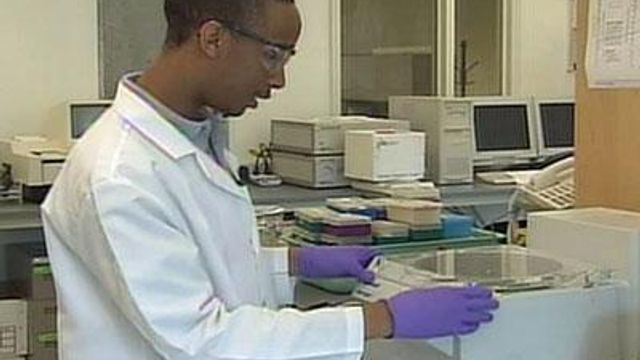Project SEED: Growing futures in a lab
Since 1968, Project SEED has made it possible for more than 4,500 high school students to conduct research in chemistry laboratories.
Posted — Updated"It's extraordinary. I never would have thought I would have been here this early,” high school student Rakeem Chesney said of working in an actual lab.
He is not alone, Andy Smith is studying DNA and it is all possible through Project SEED.
"No one really gets the opportunity from north Hampton County to conduct research at Duke University. It's unheard of,” student Andy Smith said.
This year, 40 students from across the state have a similar opportunity. However, it is not just about the research.
The students also take SAT prep classes and a scholarship coordinator works to find ways to help them pay for college.
"She would call me during school and tell me, you need to turn this in. You need to turn that in,” Chesney said.
Project SEED looks at four qualifiers for admission:
- low income
- underrepresented minorities in science (African American, Native American, Latino)
- low performing schools
- first generation to go to college
To be chosen, students must meet at least one qualifier. About 200 students applied last year, with 40 students being selected.
Among those students were Smith and Danielle Black. They will go to Duke University's Project SEED program.
"I want to go into forensic pathology,” Black said.
Chesney will attend Wake Forest University. All of the students will attend for free or close to it.
"I'm excited about that. My parents are even more excited,” Chesney said.
"It's just a matter or presenting them with the opportunity to show what they can do,” said Ken Cutler, Director of Project SEED.
The University of North Carolina at Chapel Hill and North Carolina State University also participate in Project SEED which consist of a summer internship from June 14 to July 25.
Duke University is the only program where students are housed. Students commute to the other two campuses.
Project SEED costs about $250,000 a year to run and is largely paid for through a Burroughs Wellcome Fund grant.
Each student receives a stipend to offset the loss of a summer job.
• Credits
Copyright 2024 by Capitol Broadcasting Company. All rights reserved. This material may not be published, broadcast, rewritten or redistributed.





